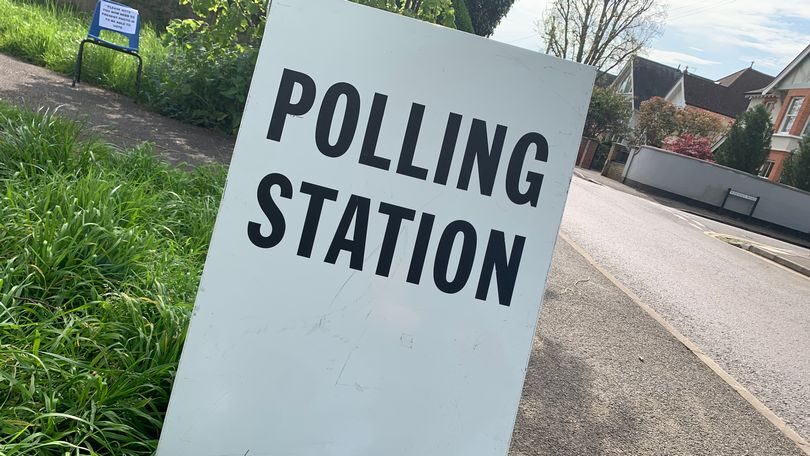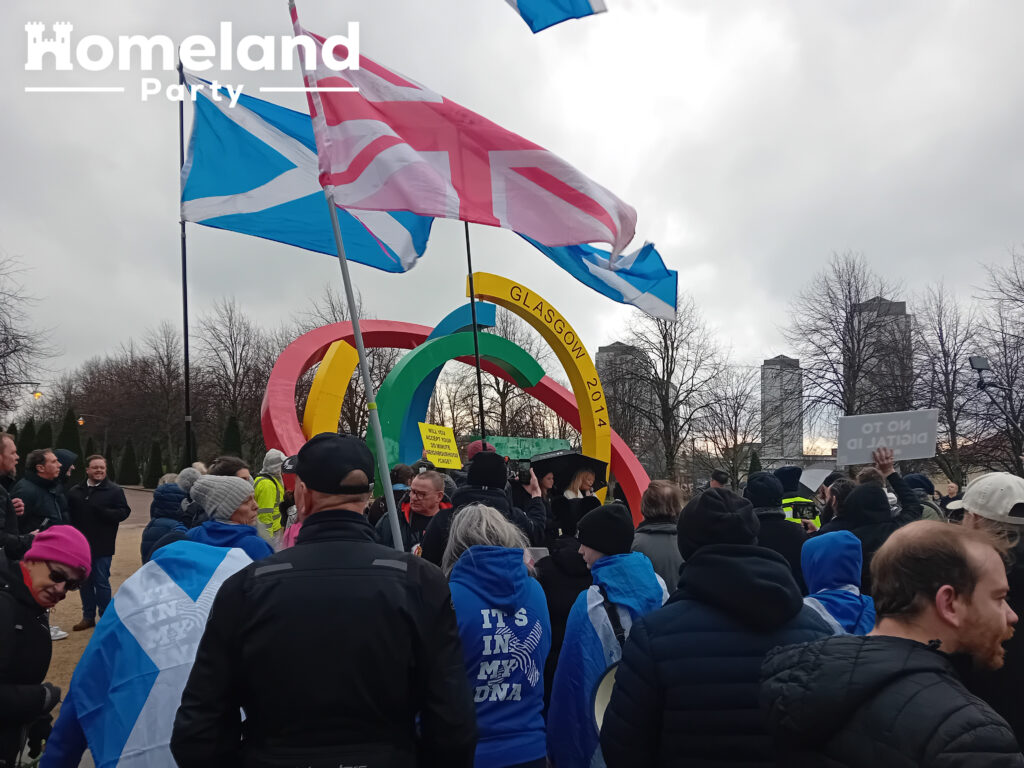
Good news first: we now have a newly elected parish councillor, Paul Padgett in Devon, and hope to win two more —Mike Lynton in Cornwall, Susan Chetta in Shropshire by this time tomorrow. That will bring our total to 14 councillors, a significant increase, and I can promise you more are on the way.
We didn’t win any county seats this year, but we didn’t expect to. This was never going to be the year for major breakthroughs at county level. It was a test of our activists, our organisers, and our ability to coordinate campaigns across multiple regions simultaneously, while continuing all our other work behind the scenes.
As the Homeland Party winds down from the 2025 local elections, it’s worth taking a moment not just to celebrate, but also to manage expectations, not to make excuses, but to be clear about where we are and where we’re going.
Our Key Beliefs state that:
“The Party’s primary objective is to stand candidates primarily at local elections in England, Scotland and Wales.”
“The Party’s long-term objective is the formation of local and national governments.”
This year was another step forward on that path. We stood five candidates for county seats and three for parish. That might not sound like a lot to some, but it’s more than some of the other so-called ‘patriotic’ parties put together, most of which have been around far longer than us and regularly poll less the one percent. And we’re actually winning at parish level and in other ways too.
We don’t believe in “paper candidates”—those who stand just to appear on the ballot, with no real intention to campaign. We want every Homeland candidate to make an impact in their community, whether that’s knocking doors, putting out leaflets, or being a local leader. That said the by-election for Mancroft in Norwich was admittedly short notice. That was a stretch for the local activists to make a serious attempt, but even then, it was a learning experience.
Parish Results Snapshot:
- Paul Padgett in Devon – ELECTED
- Mike Lynton in Cornwall – WAITING FOR RESULT
- Susan Chetta in Shropshire – WAITING FOR RESULT
County Results Snapshot:
- Bolsover, Derbyshire: Low turnout (32%). Our candidate Tom Batten took 3% of the vote, beating TUSC and running close to the Lib Dems.
- Deeping West & Rural, Lincolnshire: Low turnout (33%). Our candidate Cllr Andrew Piper took 2.5% of the vote.
- Folkestone East, Kent: Low turnout (32%). Our candidate Steve Laws took 1% of the vote, beating the Socialists.
- Maidstone Rural East, Kent: Low turnout (32%). Our candidate Simon Bennett took 1% of the vote.
- Mancroft, Norfolk: No turnout figure released. Our candidate Lorna Garner took 1% of the vote. Evidently a Green Party stronghold, just not our better green.
These results aren’t bad at all when you consider the circumstances. None of the candidates had the advantage of being long-established in their areas with persistent campaigning months in advance, none had a second leaflet, and none achieved anywhere near full canvassing saturation.
For comparison, when Roger Robertson polled 14% for us last year, he was already well-known locally, had multiple leaflets delivered, and a decent level of canvassing—though still not at full coverage.
Tom and Andrew were able to put more time and energy into their campaigns, and they achieved the strongest results—despite stiff competition and the wider challenges.
The lesson is simple: the more established you are, and the more effort you put in, the better the result. This is only the beginning for us.
So, why didn’t we expect to win a county seat this year?
It comes down to a mix of timing, logistics, and strategic priorities.
1. 2025 is an awkward year in the electoral cycle.
This year saw mainly county council seats up for election, not the more winnable district council ones. County divisions are large and spread out, requiring more effort to win. They’re a level up in difficulty—between a district and a parliamentary seat. These are not easy battlegrounds for smaller or newer parties.
2. We’re still working towards that crucial first district seat.
Our strategy is long-term. You build support, win parish seats, then district, then county, and finally Parliament. That’s the ladder. But we don’t yet have the right concentration of members, volunteers, or campaign money in one area to climb it all at once. Not yet.
3. Government intervention cost us ground.
Elections in six counties were suspended due to Whitehall’s push to create new unitary authorities. That wiped out half the areas we were preparing to contest. It set us back, no question.
4. We still look bigger than we are.
We punch above our weight online, in the media, and on the streets. But looks can be deceiving. We have about 1300 members, spread thinly across the country. That’s not enough (yet) to win a seat that needs thousands of votes and a full team behind it.
5. Funding is improving—but still limited.
We’ve had new money come in to support our activity. But we still don’t have enough to hire even one full-time member of staff. That limits what can be done, day to day. The amazing things you see from Homeland Party are still powered by volunteers juggling real lives.
So why bother standing?
Because this work matters, and it’s getting results. Our people are out there, raising awareness, introducing the Homeland Party to real-world voters, not just the political crowd online.
We’re gaining experience, learning what works and what doesn’t, and passing that knowledge on.
We’re building local leaders, the kind of community champions who will be strong contenders in 2026 and 2027, when more winnable district seats come up. That’s where our first big breakthroughs will be made. And we know it can be done.
The Lib Dems have made a career out of this strategy. The SDP, despite being largely irrelevant for decades, manage to do it in some places. Back in 1993, Derek Beackon won a the first council seat for the BNP using exactly this approach. And independents do it all the time. When a good man or woman becomes known in their area, they often get voted in. Simple as.
We just haven’t had all the stars align yet: The right person, who’s well known, with time to stand, in the right ward, at the right moment. When we do, we’ll win.
Our continued growth doesn’t depend on luck, media spin or the national mood, it depends on you: your help, your donations, your time, your belief.
And what about the national picture?
Reform UK picked up a hell of a lot of seats this time, but look closer.
They’ve got money and media coverage, but turnout was still low, and so their support isn’t built on firm ground. Their political platform is barely defined. It’s a protest vote; angry people voting against Labour and the Tories, not necessarily for anything Reform stands for. It’s a shift away from the red/blue paradigm, yes. But it’s not enthusiasm.
Now they’re going to face scrutiny. With councillors and even whole councils under their control, the pressure is on. And without a clear set of beliefs or policies beyond whatever Farage says next, they’re going to face internal splits. If you remember the general election cycle, you’ll know what comes next: purges.
The latest on-the-hoof promise from Farage is that Reform UK won’t allow boat migrants into council houses where they have control. It’s a bold idea, but not a new one. Our very own Kenny Smith has been saying this for years. He passionately believes that local councils should have sovereignty over who is housed, and that our people must come first. That principle is at the heart of our housing policy.
The public will have the chance to see whether Farage’s party means what it says, or whether this is just another headline promise that will quietly disappear when the cameras stop rolling.


